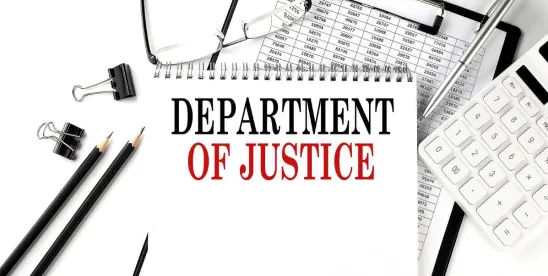The Department of Justice (DOJ) is rapidly expanding the scope of False Claims Act (FCA) enforcement, and contractors with federal funding are squarely in the crosshairs.
Deputy Attorney General Todd Blanche issued a memo on May 19, 2025, launching the Civil Rights Fraud Initiative, directing DOJ’s Civil Rights Divisions to leverage the FCA against companies that allegedly violate civil rights laws while receiving federal funds.
The initiative focuses on false certifications of compliance with anti-discrimination requirements under Titles VI and IX, including alleging missteps in DEI programs and civil rights training. While framed as a civil rights measure, the memo signals a wider shift toward aggressive FCA enforcement through non-traditional lenses.
What’s Changing?
Federal contractors are now facing scrutiny not just for billing errors and procurement fraud — but for how they certify compliance with civil rights, cybersecurity and other regulatory obligations. DOJ’s recent actions suggest a few clear trends:
- Certifications are becoming liabilities. Contractors that attest to compliance with civil rights laws, Build America Buy America Act requirements, cybersecurity protocols or Small Business Administration (SBA) qualifications are at risk if those representations are incomplete or inaccurate.
- Parallel civil-criminal investigations are on the rise. The DOJ is coordinating between civil fraud units and criminal prosecutors, especially where whistleblowers or audits suggest intent or systemic issues.
- FCA tools are expanding. Beyond traditional billing fraud, the government is increasingly using the FCA to target misuse of set-aside programs, misrepresented business statuses or noncompliance with grant terms.
Most recently, the DOJ and the U.S. Department of Health and Human Services (HHS) have launched a new FCA working group to intensify enforcement across a broader range of fraud risks. Led by DOJ Deputy Assistant Attorney General Brenna Jenny, HHS Acting General Counsel Sean Keveney and HHS Office of Inspector General (OIG) Acting Counsel Susan Edwards, the group will meet monthly to coordinate investigations, share regulatory data and pursue new FCA leads. While traditional targets like Medicare Advantage and kickbacks remain a focus, the group will also explore less-scrutinized areas such as violations of network adequacy requirements, defective medical devices that endanger patient safety and manipulations of electronic health records that drive improper Medicare billing.
The group will also evaluate the DOJ’s use of its authority to dismiss whistleblower cases and HHS’s ability to suspend payments to Medicare providers facing credible fraud allegations. Together, these efforts signal an expansion of FCA enforcement priorities, with a focus on streamlining investigations and pursuing both longstanding and overlooked areas of waste, fraud and abuse.
Why It Matters for Government Contractors
These developments represent more than policy shifts; they carry real risk for contractors of all sizes. The DOJ continues to encourage whistleblowers to bring qui tam suits, and U.S. attorneys’ offices nationwide are designating fraud coordinators to accelerate enforcement. What once may have been routine compliance issues could now escalate into a federal investigation. Contractors that operate in good faith but lack robust compliance protocols — especially those expanding into federal work — may find themselves vulnerable to costly inquiries, reputational damage and even debarment.
How to Prepare
Companies that hold government contracts or receive grants should:
- Reassess certification and compliance practices, especially those tied to civil rights, DEI, cybersecurity or small business programs.
- Proactively review contract performance documentation and reporting mechanisms.
- Ensure internal audit, whistleblower and response protocols are in place and up to date.
Conclusion
As the DOJ expands its use of the FCA to address emerging policy areas, contractors and grant recipients should take note. These developments reflect a broader enforcement posture that places increased scrutiny on certifications, internal controls and performance under federally funded agreements.
While each matter turns on its own facts, companies operating in regulated or federally funded spaces may benefit from revisiting their compliance protocols, documentation practices and response readiness. Familiarity with DOJ priorities and investigatory tools can help reduce the risk of unintended exposure. For contractors navigating this evolving risk landscape, the best defense is a proactive one.






 />i
/>i

